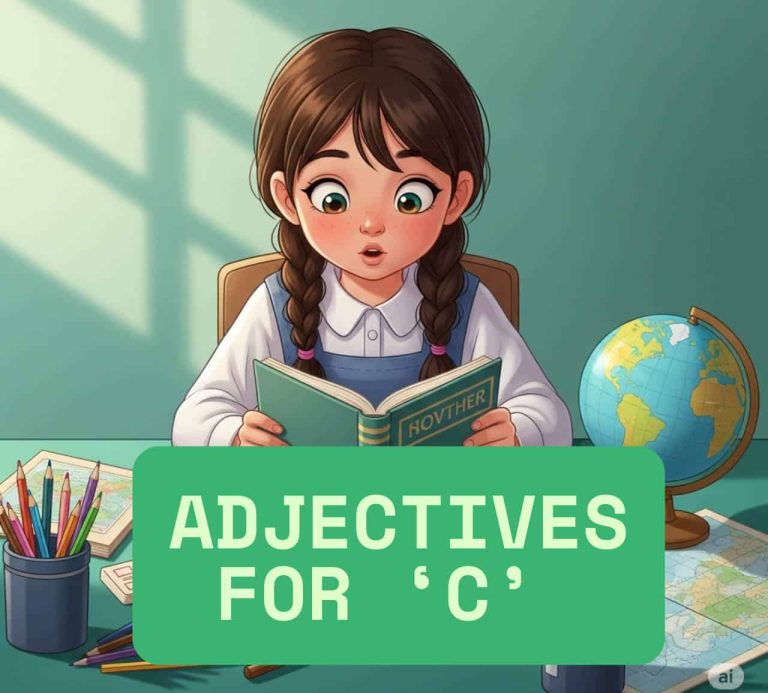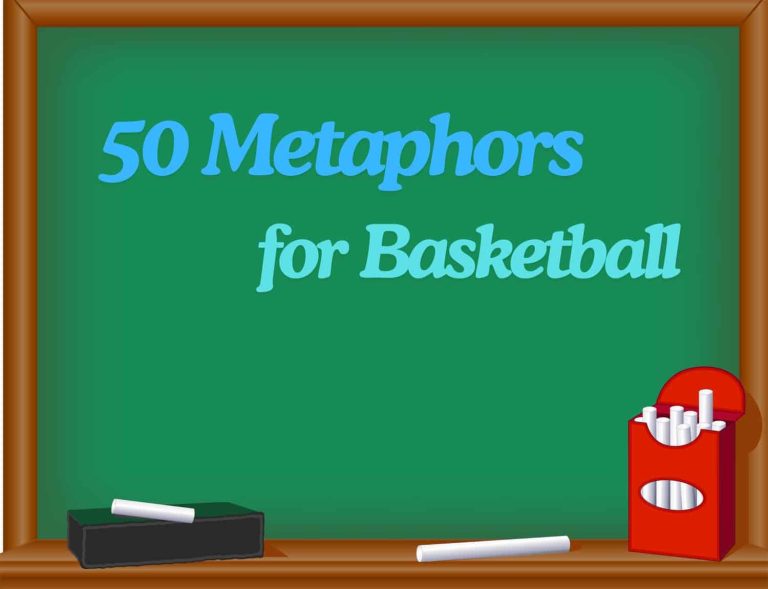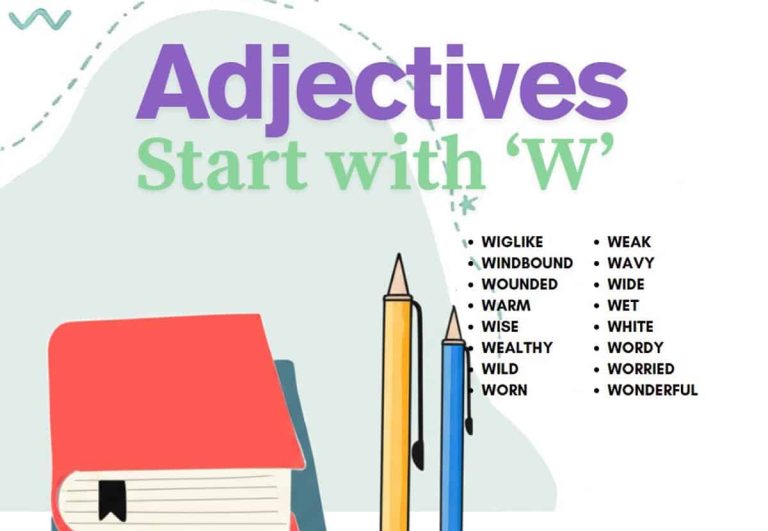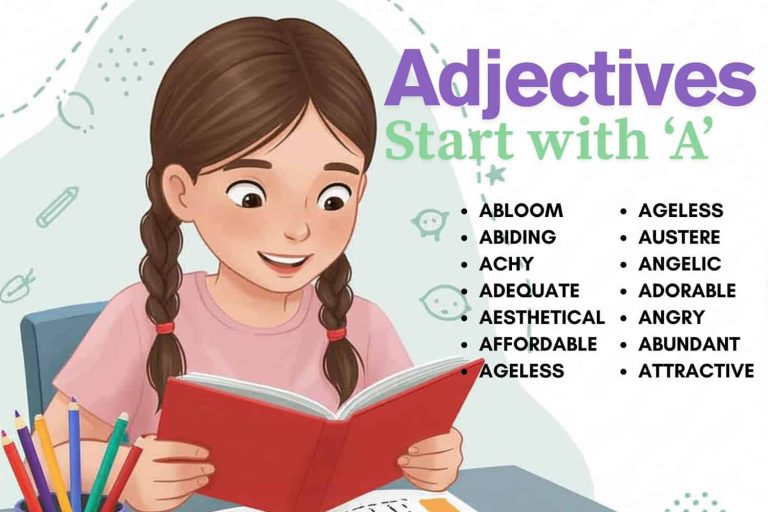100 + Adjectives That Start with ‘D’ – Learn and Practice
When it comes to adjectives that start with ‘D’, you’ll find a dynamic collection of words ranging from delightful and daring to distant and difficult. These adjectives can describe everything from personalities and moods to objects and ideas, making them versatile in everyday speech and creative writing.
Whether you’re expanding your vocabulary, enhancing your writing, or simply curious about language, exploring ‘D’ adjectives opens the door to a deeper, more expressive way of communicating. Some words carry warmth and positivity, while others reflect negativity or neutrality, giving you a balanced mix.
Understanding and effectively using these adjectives can significantly enhance your writing and speaking skills. This comprehensive guide will explore the various types of adjectives beginning with ‘D’, provide numerous examples, and offer practical exercises to help you master their usage.
Examples List of Adjectives Starting with ‘D’
Adjectives starting with the letter ‘D’ can be categorized based on their function and meaning. Here are several examples categorized by type:
Descriptive Adjectives Examples
Descriptive adjectives, also known as qualitative adjectives, describe the qualities or characteristics of a noun. They provide information about the noun’s appearance, size, shape, color, origin, or other attributes.
| Adjective | Example Sentence |
|---|---|
| Dark | The dark night was filled with stars. |
| Delicious | The cake was absolutely delicious. |
| Durable | This furniture is made of durable material. |
| Diligent | She is a diligent student who always completes her assignments on time. |
| Dangerous | The dangerous path was avoided by most hikers. |
| Decisive | The leader made a decisive move that changed the course of the game. |
| Delightful | We had a delightful time at the party. |
| Demanding | The job was very demanding, requiring long hours and intense focus. |
| Dense | The forest was so dense that sunlight barely reached the ground. |
| Dependent | Young children are often dependent on their parents for care. |
| Detailed | The report provided a detailed analysis of the situation. |
| Determined | She was determined to succeed, no matter the obstacles. |
| Devoted | He was a devoted father, always putting his children first. |
| Different | We all have different opinions on the matter. |
| Difficult | The exam was extremely difficult this year. |
| Digital | We now live in a digital age. |
| Dim | The dim light made it hard to see clearly. |
| Direct | He gave us direct instructions on how to proceed. |
| Dirty | The dirty clothes needed to be washed. |
| Discreet | She was very discreet about the private information. |
| Distinct | The two paintings had distinct styles. |
| Distant | The distant mountains looked majestic. |
| Divine | The music was absolutely divine. |
| Dominant | The dominant species in the ecosystem is the lion. |
| Doubtful | I’m doubtful that it will rain today. |
| Dramatic | There was a dramatic change in the weather. |
| Dreary | The dreary day made everyone feel gloomy. |
| Dry | The dry desert landscape stretched for miles. |
| Dual | The car has a dual exhaust system. |
| Dumb | It was a dumb mistake to make. |
Demonstrative Adjectives Examples
Demonstrative adjectives indicate which noun is being referred to. They specify whether the noun is near or far, singular or plural. For example, “This book is interesting,” or “Those cars are expensive.”
The following table illustrates the use of *this*, *that*, *these*, and *those* as demonstrative adjectives.
| Adjective | Example Sentence |
|---|---|
| This | This book is very interesting. |
| That | That car is too expensive for me. |
| These | These shoes are very comfortable. |
| Those | Those birds are migrating south for the winter. |
| This | I want this piece of cake. |
| That | That idea sounds promising. |
| These | These flowers smell wonderful. |
| Those | Those houses are on sale. |
| This | This morning I woke up late. |
| That | That afternoon we went to the beach. |
| These | These days are very busy for me. |
| Those | Those years were the best of my life. |
| This | This movie is worth watching. |
| That | That song is my favorite. |
| These | These apples are very sweet. |
| Those | Those trees provide good shade. |
| This | This question is difficult to answer. |
| That | That answer is correct. |
| These | These problems need solutions. |
| Those | Those children are playing in the park. |
| This | This city is very vibrant. |
| That | That country has a rich history. |
| These | These books are required reading. |
| Those | Those documents are confidential. |
| This | This painting is a masterpiece. |
| That | That sculpture is incredibly detailed. |
| These | These artifacts are ancient. |
| Those | Those relics are priceless. |
Distributive Adjectives Examples
Distributive adjectives refer to members of a group individually. They include words like *each*, *every*, *either*, and *neither*. These adjectives are used to specify that something applies to each member of a group separately. For example, “Each student received a certificate,” or “Neither option is suitable.”
| Adjective | Example Sentence |
|---|---|
| Each | Each student must submit their assignment by Friday. |
| Every | Every citizen has the right to vote. |
| Either | You can choose either option; both are good. |
| Neither | Neither candidate is suitable for the job. |
| Each | Each house on the street was decorated for the holidays. |
| Every | Every day is a new opportunity. |
| Either | Either side of the road is acceptable for parking. |
| Neither | Neither answer is correct. |
| Each | Each member of the team played their part. |
| Every | Every detail was carefully considered. |
| Either | Either path will lead you to the village. |
| Neither | Neither statement is true. |
| Each | Each guest received a party favor. |
| Every | Every effort was made to ensure success. |
| Either | Either way, we will achieve our goal. |
| Neither | Neither excuse is acceptable. |
| Each | Each chapter of the book was fascinating. |
| Every | Every corner of the museum was filled with art. |
| Either | Either choice will result in a positive outcome. |
| Neither | Neither reason is sufficient. |
| Each | Each participant will receive a certificate. |
| Every | Every employee must attend the training. |
| Either | Either route is scenic. |
| Neither | Neither option is appealing. |
| Each | Each tree in the orchard bears fruit. |
| Every | Every page of the manuscript was carefully preserved. |
| Either | Either color will look great on the wall. |
| Neither | Neither suggestion is practical. |
Definite Adjectives Examples
While “definite adjective” isn’t a formally recognized grammatical term, we can consider adjectives that specify a precise or certain quality as fitting this category. These adjectives leave little room for ambiguity.
Examples can include adjectives derived from numbers like *double*, *duplex* or those indicating certainty such as *decided*.
| Adjective | Example Sentence |
|---|---|
| Double | We ordered a double cheeseburger. |
| Duplex | They live in a duplex apartment. |
| Decided | It was a decided victory for our team. |
| Double | She earned a double major in college. |
| Duplex | The building is a duplex, with two separate living units. |
| Decided | There was a decided improvement in his performance. |
| Double | He asked for a double portion of the dessert. |
| Duplex | The duplex house was perfect for two families. |
| Decided | The outcome was a decided success. |
| Double | The recipe calls for a double dose of vanilla. |
| Duplex | They invested in a duplex as a rental property. |
| Decided | The judge delivered a decided ruling. |
| Double | The movie has a double meaning. |
| Duplex | The office is located in a duplex building. |
| Decided | It was a decided advantage to have experience. |
| Double | She received a double bonus this year. |
| Duplex | The duplex apartment has a shared backyard. |
| Decided | They made a decided effort to improve their skills. |
| Double | The security system has a double lock. |
| Duplex | The duplex is ideal for small families. |
| Decided | There was a decided change in her attitude. |
Usage Rules
Adjectives must agree in number with the noun they modify. However, in English, adjectives generally do not change form to indicate number (singular or plural), unlike in some other languages.
When using multiple adjectives to describe a noun, follow the general order: opinion, size, age, shape, color, origin, material, and purpose. For example: *a beautiful large old round blue Italian leather writing desk*.
Coordinate adjectives, which are adjectives of equal rank, should be separated by commas. To determine if adjectives are coordinate, try inserting “and” between them.
If the sentence still makes sense, they are coordinate. For example: *a smart, capable student* (a smart and capable student).
Cumulative adjectives, which build upon each other to modify the noun, should not be separated by commas. For example: *a little old house* (the age and size work together to modify the house).
Common Mistakes
One common mistake is using adjectives as adverbs. Remember that adjectives modify nouns, while adverbs modify verbs, adjectives, or other adverbs.
Incorrect: He runs quick.
Correct: He runs quickly.
Another common mistake is misusing comparative and superlative forms. Remember to use the correct form based on the number of items being compared.
Incorrect: This is the most good book I have ever read.
Correct: This is the best book I have ever read.
Also, avoid using double negatives with adjectives that have negative meanings.
Incorrect: He is not dishonest.
Correct: He is honest.
Confusing demonstrative adjectives is also common. Remember that *this* and *these* refer to things that are near, while *that* and *those* refer to things that are farther away. *This* and *that* are singular, while *these* and *those* are plural.
Incorrect: These book is mine.
Correct: This book is mine.
Practice Exercises
Test your understanding of adjectives starting with ‘D’ with these practice exercises.
Exercise 1: Fill in the Blanks
Choose the correct adjective from the list to complete each sentence: (dark, delicious, durable, diligent, dangerous)
| Question | Answer |
|---|---|
| 1. The ______ road was closed due to the storm. | dangerous |
| 2. She is a ______ student who always completes her work. | diligent |
| 3. The ______ chocolate cake was a treat. | delicious |
| 4. The ______ material ensures the product lasts long. | durable |
| 5. The ______ room was dimly lit. | dark |
| 6. It is ______ to swim in the ocean during a hurricane. | dangerous |
| 7. A ______ worker is an asset to any company. | diligent |
| 8. The ______ aroma of freshly baked bread filled the air. | delicious |
| 9. The clothing is made of ______ fabric, meant to withstand harsh conditions. | durable |
| 10. The ______ sky was filled with ominous clouds. | dark |
Identify the adjective starting with ‘D’ in each sentence.
| Question | Answer |
|---|---|
| 1. That distant star looks so bright tonight. | distant |
| 2. Each participant will receive a certificate. | Each |
| 3. This old wooden box is very durable. | durable |
| 4. The decided outcome was in our favor. | decided |
| 5. The demanding job required long hours. | demanding |
| 6. We are facing a difficult situation. | difficult |
| 7. This digital camera takes high-quality photos. | digital |
| 8. The food at the restaurant was delicious. | delicious |
| 9. The dark forest was filled with mysteries. | dark |
| 10. The determined athlete trained every day. | determined |
Create a sentence using each of the following adjectives starting with ‘D’: (doubtful, dramatic, dreary, dry, dual)
| Adjective | Example Sentence |
|---|---|
| Doubtful | I am doubtful that the weather will improve this weekend. |
| Dramatic | The play had a dramatic ending that left the audience in awe. |
| Dreary | The dreary weather made me want to stay inside all day. |
| Dry | The dry desert landscape stretched for miles in every direction. |
| Dual | The car has a dual exhaust system for enhanced performance. |
FAQ for Adjectives That Start with ‘D’
Here are some frequently asked questions about adjectives:
What is the difference between an adjective and an adverb?
Adjectives modify nouns or pronouns, while adverbs modify verbs, adjectives, or other adverbs. Adjectives describe qualities or characteristics, while adverbs describe how, when, where, or to what extent an action is performed. For example, “The quick brown fox” (quick is an adjective), versus “The fox jumps quickly” (quickly is an adverb).
How do I know the correct order of adjectives when using multiple adjectives?
A general guideline is to follow the order: opinion, size, age, shape, color, origin, material, and purpose. However, this is not a strict rule, and the best order may depend on the specific context and the emphasis you want to convey. It’s often best to choose the order that sounds most natural.
What are possessive adjectives?
Possessive adjectives (my, your, his, her, its, our, their) indicate ownership or possession. They function as adjectives because they modify nouns. For example, “This is my book.”
Can a noun be used as an adjective?
Yes, nouns can sometimes function as adjectives. This is called a noun adjunct or attributive noun. For example, in the phrase “computer screen,” the noun “computer” modifies the noun “screen” and functions as an adjective.
What is a predicate adjective?
A predicate adjective follows a linking verb (such as *be*, *seem*, *become*, *appear*) and describes the subject of the sentence. For example, “The sky is blue” (blue is a predicate adjective describing the sky).
Are there any adjectives that can be both adjectives and adverbs?
Yes, some words can function as both adjectives and adverbs, depending on how they are used in a sentence. For example, “fast” can be an adjective (“a fast car“) or an adverb (“He runs fast“).
How do I form the comparative and superlative forms of adjectives?
For most short adjectives (one or two syllables), add “-er” for the comparative form and “-est” for the superlative form (e.g., *tall, taller, tallest*). For longer adjectives (three or more syllables), use “more” for the comparative form and “most” for the superlative form (e.g., *beautiful, more beautiful, most beautiful*). Some adjectives have irregular forms (e.g., *good, better, best*).
What are collective adjectives?
Collective adjectives are used to describe a group or collection of people or things. For example, “the general public” or “the national team.” These adjectives often refer to a group as a whole rather than individual members.
Conclusion
Mastering adjectives, especially those starting with the letter ‘D’, can significantly enhance your ability to communicate effectively and expressively.
With consistent effort and a passion for language, you can become a master of adjectives and elevate your communication skills to new heights. Keep practicing, keep exploring, and keep learning!
Practice using these adjectives in various contexts to solidify your understanding and build your vocabulary.
Continue to explore the vast world of adjectives and their nuances. Consider how skilled writers use adjectives to create vivid descriptions and engaging narratives.





